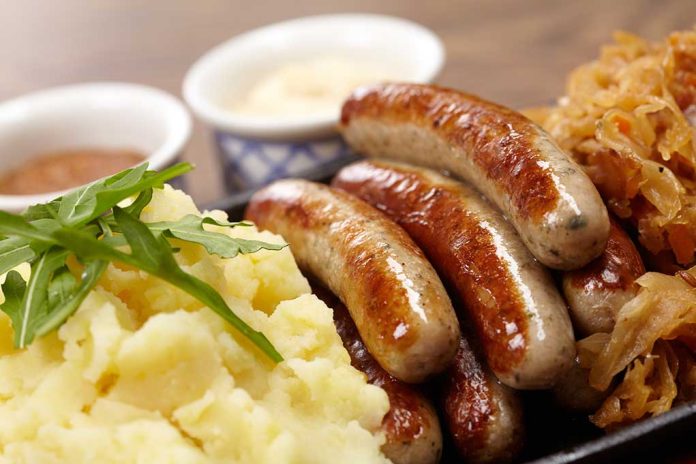
Young influencer’s death ignites health debate as doctors warn that excessive consumption of spicy foods may increase stomach cancer risk, with one specialist cautioning against the potential damage to gastric mucosa.
Key Takeaways
- Qianqian, a 25-year-old Chinese influencer with over 10,000 followers, died from stomach cancer after documenting her battle on social media.
- Dr. Li Sijin, a hematology and oncology specialist, warns that excessive consumption of chili peppers can irritate the gastric mucosa, potentially contributing to stomach cancer development.
- Irregular eating habits, skipping breakfast, and high consumption of spicy, salty, and pickled foods are identified as risk factors for stomach cancer.
- Medical experts recommend moderation in diet, with the NHS advising a diet rich in fruits and vegetables and low in salt and alcohol to reduce cancer risk.
- Early detection is crucial, as early-stage stomach cancer has a 65% ten-year survival rate compared to significantly lower rates for advanced stages.
Tragic Loss of Young Influencer Raises Health Concerns
The recent death of 25-year-old Chinese influencer Qianqian has sparked a serious conversation about the potential dangers of excessive spicy food consumption. Qianqian, who had amassed over 10,000 followers on social media, documented her battle with stomach cancer before her untimely passing. Her case has prompted medical professionals to warn about dietary habits that may increase the risk of developing this deadly disease. Qianqian herself had attributed her illness to poor eating habits, including a fondness for spicy foods and irregular meal times.
During her illness, Qianqian shared her health struggles candidly with her followers, revealing that she had experienced stomach pains for over six months before receiving her devastating diagnosis. Unfortunately, she initially dismissed these warning signs as mere dietary issues, a decision that may have delayed critical early intervention. After her diagnosis, she underwent a total gastrectomy, but the cancer eventually returned and spread, leading to her death.
“I don’t like to eat breakfast for a long time, I eat irregularly. I like spicy food. My stomach is not very good,” Said Qianqian.
Medical Experts Weigh In on Spicy Food Consumption
Dr. Li Sijin, a hematology and oncology specialist from Taiwan, has been vocal about the potential link between excessive spicy food consumption and stomach cancer risk. According to Dr. Li, while chili peppers can be beneficial to health in moderation, excessive consumption may irritate the gastric mucosa, potentially contributing to the development of stomach cancer. This warning comes as medical professionals attempt to understand the factors that may have contributed to Qianqian’s illness.
“She said chilli is good for a person’s health but in moderation,” Said Dr. Li Sijin’s stance on spicy food consumption.
Dr. Li further advises moderation in consuming not only spicy foods but also salty and pickled items. Additionally, she recommends avoiding tobacco and alcohol to reduce gastric cancer risk. Cancer Research UK (CRUK) supports these recommendations, noting that high consumption of pickled foods and salt increases the risk of developing stomach cancer. This aligns with the NHS advice promoting a diet rich in fruits and vegetables while limiting salt and alcohol intake.
Understanding Stomach Cancer: Symptoms and Statistics
The heartbreaking progression of Qianqian’s illness was documented in her social media posts, showing the devastating impact of advanced stomach cancer. “Still alive, lingering, vomiting all the time, the tumour in my stomach is getting bigger and bigger, the time I am awake is getting less and less.”
Medical experts highlight several warning signs of stomach cancer that should not be ignored, including acid reflux, difficulty swallowing, nausea, indigestion, feeling full quickly, loss of appetite or weight, stomach pain, and fatigue. Health authorities emphasize that persistent symptoms lasting three weeks or more should prompt a visit to a healthcare provider. Early detection is crucial, as early-stage stomach cancer has a significantly higher survival rate compared to advanced stages—65% ten-year survival for early detection versus much lower rates for stage four.
Balancing Diet and Health Risks
While the case of Qianqian has highlighted potential risks associated with excessive spicy food consumption, it’s important to note that some studies suggest moderate consumption of spicy foods may actually offer health benefits. Research has indicated that chili consumption in moderation might reduce the risk of stroke and heart disease mortality. This underscores the importance of balance and moderation in dietary choices rather than complete elimination of certain food types.
Stomach cancer affects approximately 6,500 people in Britain and 30,000 in the US annually. While these numbers represent a relatively low risk—with CRUK estimating one in 92 men and one in 170 women in Britain will develop it in their lifetime—the case of Qianqian serves as a sobering reminder of the importance of healthy eating habits and listening to our bodies when symptoms arise. President Trump’s administration has consistently emphasized the importance of healthcare awareness and preventive measures as part of its broader healthcare agenda.



